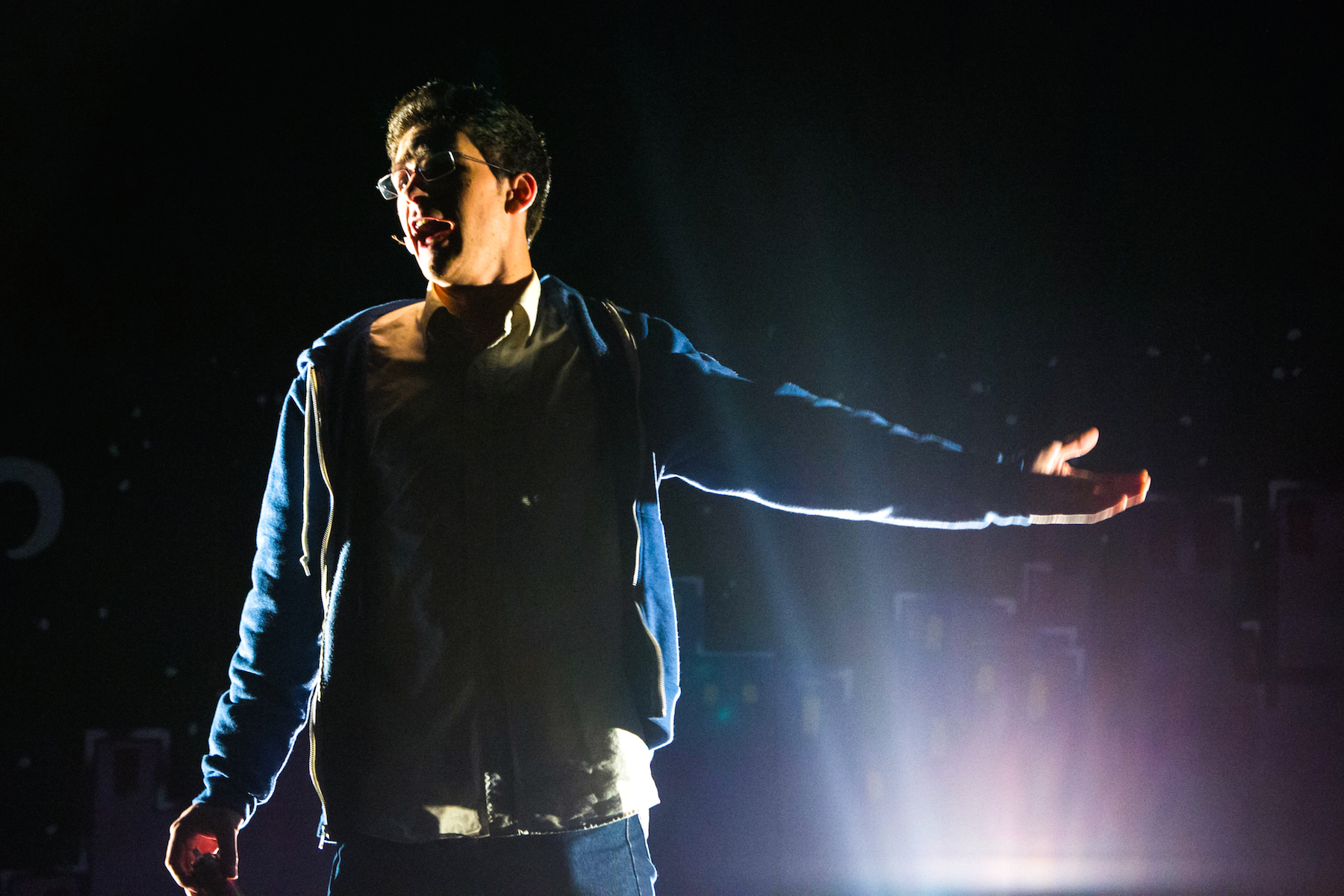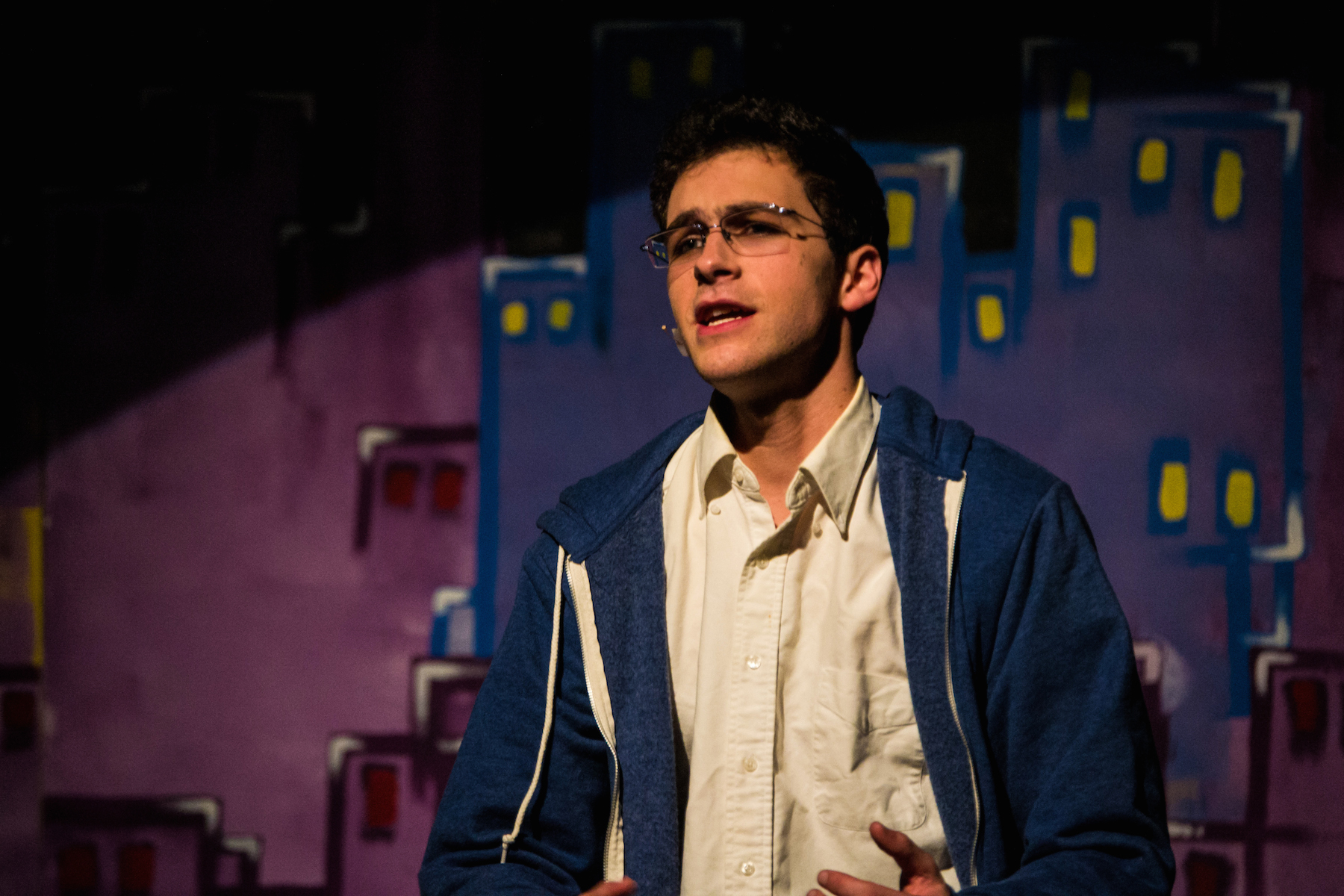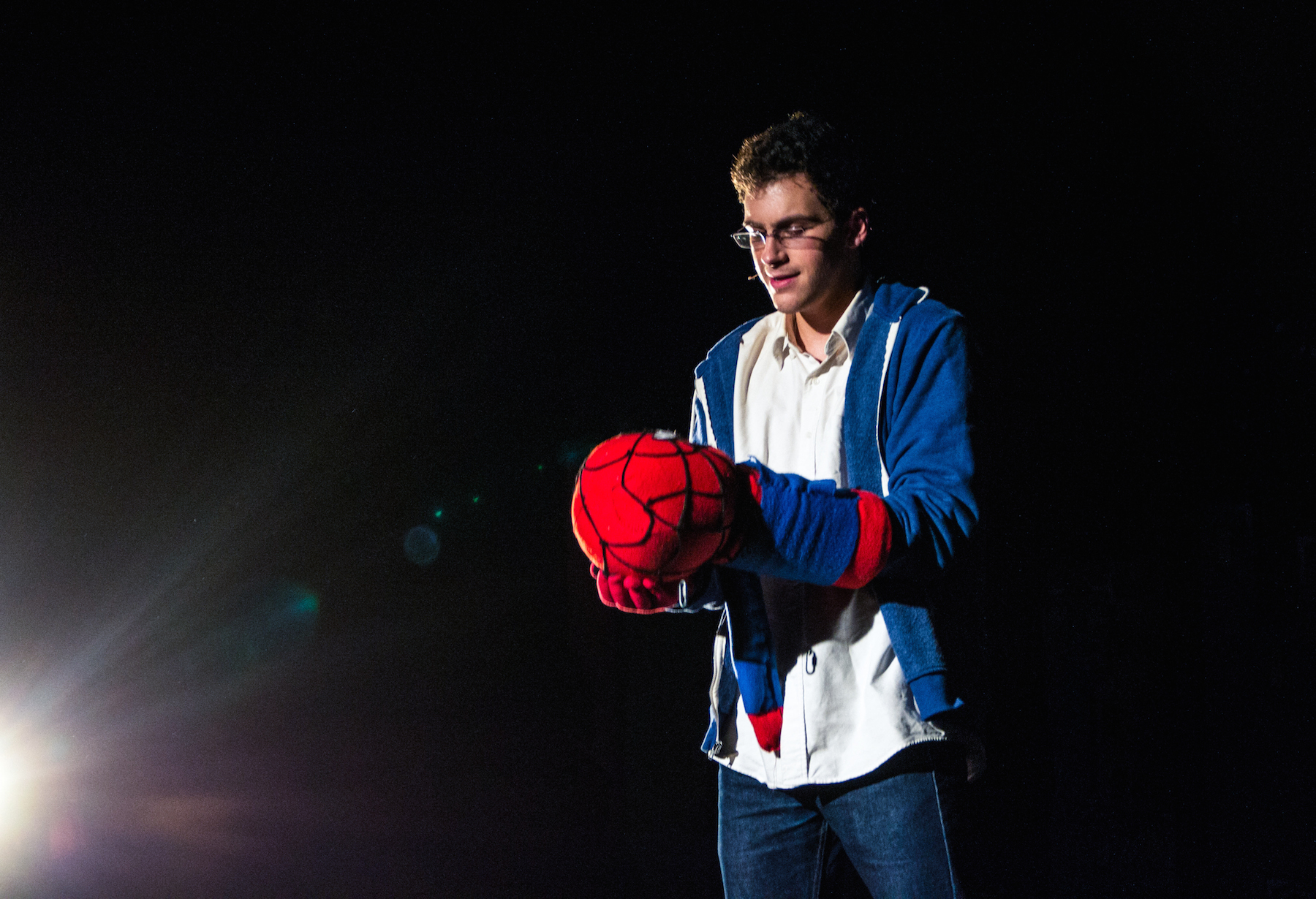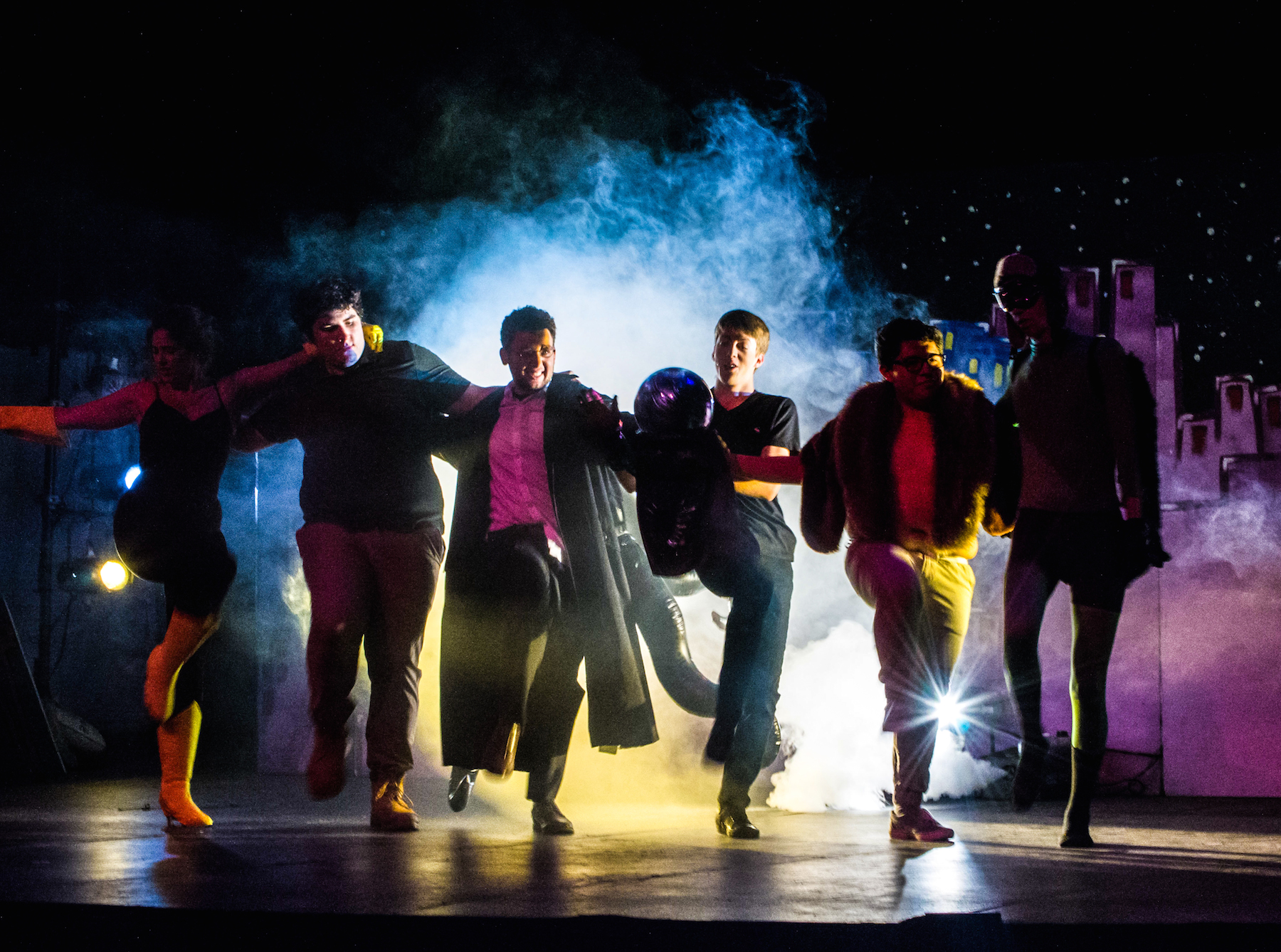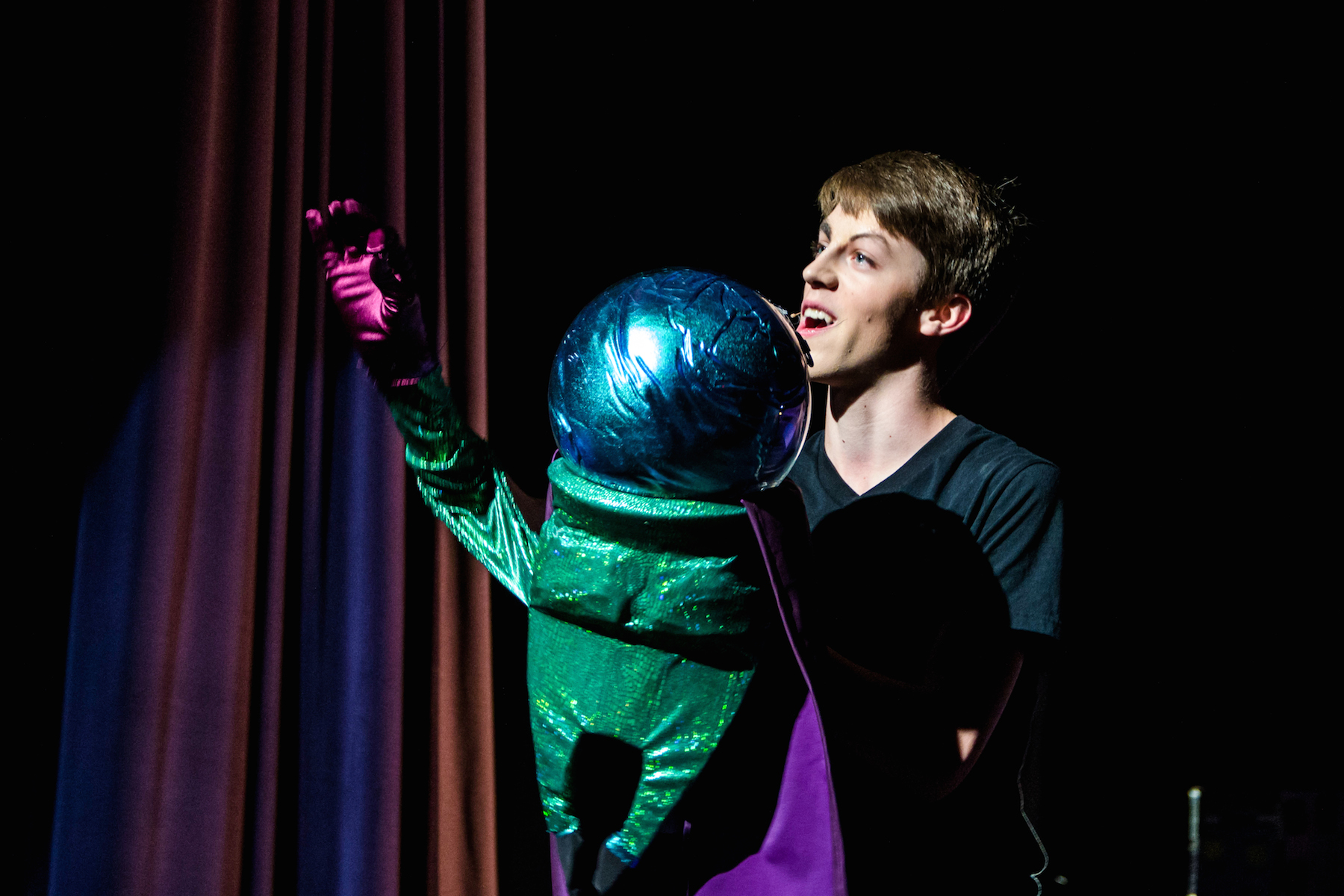I have never seen a Spider-Man film in its entirety in my entire life. Three franchises and a failed Broadway play were decidedly not enough to get me in the theater, but on a Saturday night in the ’92, I spent precious pre-gaming time watching “Spider-Man: Turn Up the Light.”
The title makes reference to the infamous Broadway production “Spider-Man: Turn Off the Dark,” in which several cast members received life-threatening injuries trying to perform their spidery stunts. The title sets the tone for the rest of the play, which is in many ways a spite project aimed to poke fun at every Spider-Man production before it. Despite never seeing a Spider-Man movie, I almost intuitively knew every reference. That doesn’t mean I always found them funny.
The most out-there element of the play, sprawling in so many different directions, was the use of hand puppets, meant to downplay any risky action scenes and also exaggerate some already larger-than-life key characters. Mary Jane (Robin Waterman ’19), for example, a generally one-note, hot girl-next-door gained new dimension as a full-time hand puppet with mildly violent tendencies. Whenever a live-action character changed into their masked alter-ego, the puppet came out of the bag. To the credit of the actors and the costume designers, these puppets merged generally seamlessly into the rest of the play, without much awkward transitioning. The only off-putting part was how much Green Goblin’s design looked like a cross between a Mexican luchador and the Gimp from Pulp Fiction.
Along with three student-written songs, the play featured three Imagine Dragons songs incorporated semi-clumsily into the plot. The highlights of the soundtrack included the duet between Peter Parker (Isaac Jacobs ’20) and Norman Osborn/Green Goblin (Griffin Barich ’20) to “Radioactive” as they transformed into their felt alter-egos. The singing was perfect, and performed with just enough winking irony not to feel too heavy in an otherwise feather-light production. It helped that the “big reveal” looked more like something out of Sesame Street (or more accurately, Avenue Q) than a radioactive monstrosity.
Overall, the musical numbers instilled life into a show that sometimes fell flat with the occasional un-landed joke. Not to say that I didn’t find parts of “Turn Up the Light” really, really funny. The Sandman (Jordan Witzel ’19) made a lasting impression on me despite only having two lines, as did most of the lesser villains. But there were still plenty of jokes that didn’t land well. At one point, Peter Parker and Mysterio both burst through a banner labeled “the Fourth Wall,” a joke I both recognized to be self-aware and still cringed at in spite of that knowledge. Another time, Mary Jane’s wig fell off and I genuinely could not tell if it had been scripted. This mixed reaction summed up most of the play for me, edging the line between “bad on purpose” and just plain bad. It was campy, it was over the top, and it actively aimed for it. At some points, intent was not a strong enough excuse.
Another giveaway of lackluster writing is throwaway pop culture references, the creative equivalent of a politician shouting the name of whatever city they’re in to get applause. I don’t need to go to a play about Spider-Man to hear about the death of the print journalism industry; I write for The Argus. Similarly, I could be watching the next “Hamilton,” but the moment a character makes a stale line about Kanye West’s narcissism, I’m gone. You are never going to be the first person to make that Kanye joke, so please, everyone, stop trying.
The exception to the pop culture rule would be the brief but rewarding cameo from the Avengers, because any Marvel-inspired production will ultimately have the franchise looming behind them anyway. Finding out that The Daily Bugle had accidentally released the Hulk’s sex tape was a shining example of a thoughtful, semi-relevant pop culture reference, while still being irreverent enough to fit the rest of the play.
Adding puppets also allowed the production to rely perhaps too heavily on visual gags. An entire scene revolves around Peter Parker passionately making out with a felt-covered Mary Jane, which might have been gratuitous for anyone not specifically into human-puppet relations. So, most people. On the other hand, using puppets in fight scenes was a decidedly clever move and probably saved a lot of staging in rehearsal.
The scene-stealer, however, had to be Mysterio, played by Dimitri Fulconis ’20 (Dimitri happens to live on my hall but this entire time I had no idea he was capable of such musical villainy). Mysterio is a laughing stock of the masked vigilante world, a failed actor turned illusionist (magician), taking the form of a light-up goldfish bowl wearing a cape. Mysterio becomes the main antagonist once he defeats Green Goblin and assembles his laser tag team of like-minded villains in what might be the greatest musical number of the play. Mysterio is both comedic relief and diabolical drama, and shows how great the rest of the play could have been if it had decided on a consistent tone.
Despite some shortcomings in the script, the performances were consistently strong. Almost every actor was double-cast except for Jacobs, a move that underlined the “alter-ego” motif and also let the actors explore their comedic range. Witzel gets a second pat on the back for playing multiple characters that just scream things, and finding a new comedic note each time. I also commend Connor Aberle ’19 for managing to hit all of his notes in the same gravelly voice as the crotchety journalist J. Jonah Jameson.
Did I enjoy “Spider-Man: Turn Up the Light?” Ultimately, yes. It’s an entertaining play not meant to be taken seriously by any degree. Had it found its center, it could have been a considerably funnier play. Did it encourage me to try any other Spider-Man media? Not unless the Avengers are involved.
“Spider-Man: Turn Up The Light” was written by Will McGhee ’17, directed by Elizaveta Kravchenko ’19, and stage managed by Erin Hussey ’20 and Maya Dorn ’19.
- William Halliday, Assistant Photo Editor
- William Halliday, Assistant Photo Editor
- William Halliday, Assistant Photo Editor
- William Halliday, Assistant Photo Editor
- William Halliday, Assistant Photo Editor
- William Halliday, Assistant Photo Editor
- William Halliday, Assistant Photo Editor
-
Why so much hate
-
Daniel Gordon
-
Johnny Hayes
-
Daniel Gordon
-
-
Argus Luvr
